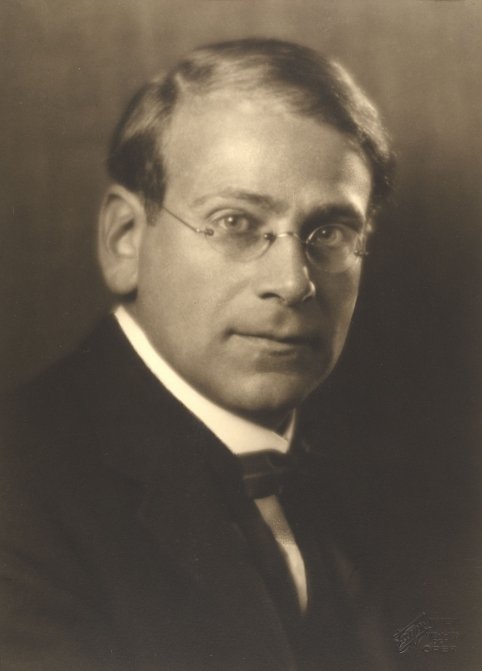- Portrait
- History

Egon Wellesz was a three-fold talent: composer, musicologist and Byzantinist. Born into an upper middle-class Viennese family in 1885, he grew up at a time when the great Austrian musical tradition was in its final flush, but at the same time, a new musical avant-garde was developing its own ideas and visions. This pioneering spirit also left its mark on him, and influenced his later musical aesthetic, which combines the tonally sensuous music of the fin de siècle and the principles of the new Modernism.
At the age of fourteen he has his epiphany: the performances of Beethoven’s Ninth and Weber’s Freischütz under the direction of Gustav Mahler, who he admired, impressed him so much that – as he wrote – “the following day I began to compose [...] So much did it urge me to become a musician that I began to learn the basics of the musical craft without help or instruction”.
Under the spell of Mahler and Schoenberg
At his parents’ request, he initially began studying law, but soon switched to musicology and also became one of Arnold Schoenberg’s first students. Professionally, he followed two paths: as a scholar, he taught at the conservatory and at the university, he became a specialist in Baroque opera and deciphered the medieval, Byzantine musical notation. As a composer, his works, especially his stage works, the Persisches Ballett and the operas Prinzessin Girnara, Alkestis and Die Bakchantinnen, based on oriental and Greek subjects, made him one of the most frequently performed composers of the 1920s and 1930s.
In 1938, the National Socialists annexed Austria. Egon Wellesz, who came from a Jewish family and would therefore be banned from working in Vienna, was on a trip to the Netherlands at the time. Instead of returning to his homeland, he emigrated to England, where he began teaching at Lincoln College, Oxford.
New start in England
This radical break with his previous life initially silenced him as a composer. Five years passed before he began to work creatively again. Egon Wellesz was then 60 years old. Until his death in 1974, he wrote a large number of chamber music and piano works, as well as songs and church music, and above all – nine symphonies, a genre he had previously avoided: “It signifies a new phase in my creative work, the spiritual return to my great ancestors. Growing up in the Austrian musical tradition, the symphony had always seemed to me to be the highest medium of musical expression.”
Biographical data of the composer:
1885: Born in Vienna
1892: Started piano lessons
1904: Studied law at Vienna University
1905: Changed to musicology
1905/06: Taught by Arnold Schoenberg
1908: Doctorate
1911-15: Teacher at the New Vienna Conservatory
1913: Habilitation
1921: First performance of the opera Die Prinzessin Girnara
1924: First performance of the opera Alkestis
1929: Professorship at Vienna University
1931: First performance of the opera Die Bakchantinnen
1938: Emigration to England
1939: Teacher at Lincoln College, Oxford University
1945/46: Composition of the First Symphony
1946: Awarded British citizenship
1951: First performance of the opera Incognita
1966: Festliches Präludium on a Byzantine Magnificat
1970/71: Ninth Symphony
1974: Death in Oxford